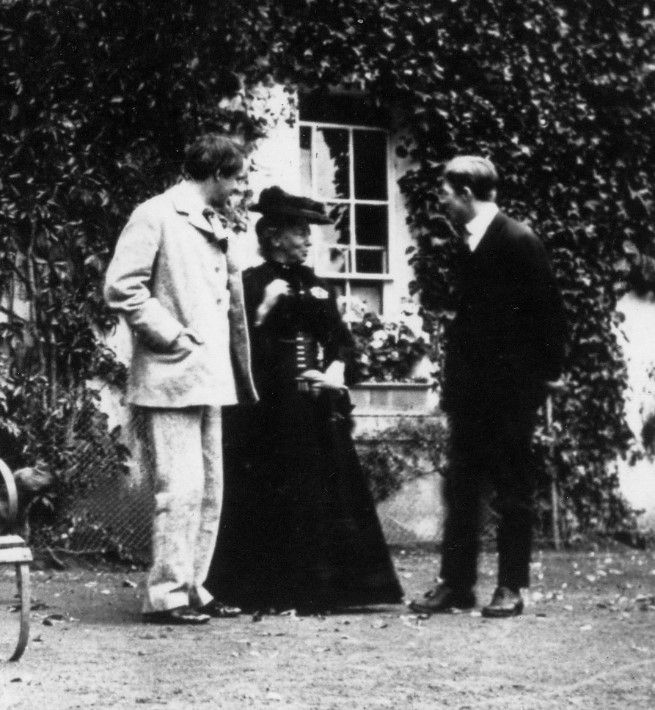William Butler Yeats and Lady Augusta Gregory
Coole Park, Gort, Co. Galway, Ireland
Lady Augusta Gregory
Lady Gregory, an Irish writer and playwright played a large role in the Irish Literary Renaissance through her translation of Irish legends and her peasant comedies. Lady Gregory’s literary career began later in life after the death of her husband, contributing to the Irish Literary theatre (1892) and directing for the Abbey theatre (1904) (Encyclopedia Britannica, Augusta, Lady Gregory). Lady Gregory founded the Irish Theatre, which eventually became the Abbey Theatre. Lady Gregory wrote or translated nearly 40 plays. She also wrote contributions for The Green Sheaf.
William Butler Yeats
William Butler Yeats was born in Sandymount, Dublin on June 13th, 1865. Yeats was a poet, dramatist, and prose writer. He was a figurehead of the Irish Literary Renaissance and one of the greatest English-poets of the twentieth century (Encyclopedia Britannica, William Butler Yeats). Yeats was educated in both Dublin and London. Yeats founded the Irish Theatre with Lady Gregory, which eventually became the Abbey Theatre. After 1910, Yeats theatrical and dramatic style became profoundly more experimental and his work became influenced by Japanese Noh plays (Nobel Lectures). He received the Nobel prize for Literature in 1923 (Encyclopedia Britannica, William Butler Yeats).

“W.B. Yeats, Lady Gregory and Robert Gregory at Coole”
Coordinates
Longitude: -8.835883800000
